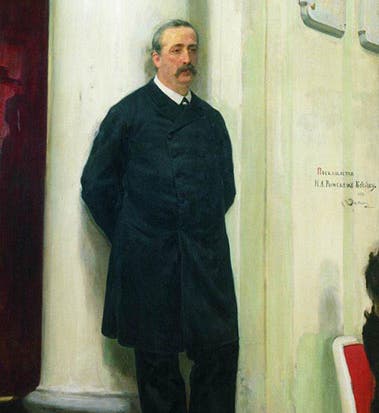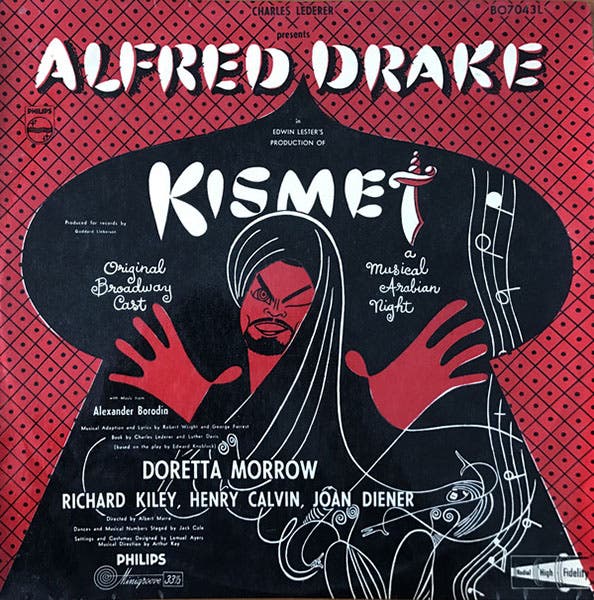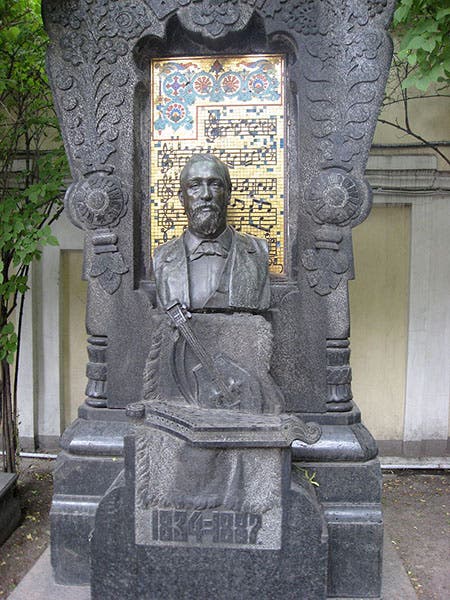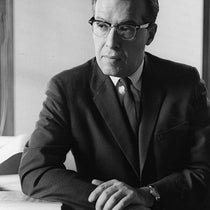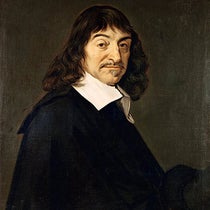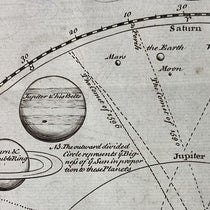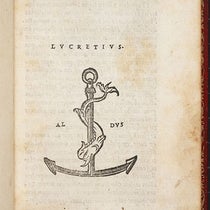Scientist of the Day - Alexander Borodin
Alexander Borodin, a Russian chemist and composer, was born Nov. 12, 1833. Most people, if they have heard of Borodin at all, know him as a composer of symphonic poems. such as “The Steppes of Central Asia,” or as an opera composer and creator of the “Polovtsian Dances.” In fact, by profession, Borodin was a medically-trained organic chemist, and a very good one. He taught at the Imperial Medical-Surgical Academy in St. Petersburg. Modern organic chemists recognize him as the co-discoverer of the aldol reaction, which is used to build complex carbon compounds, and for his work in organic synthesis. He was also instrumental is setting up the first medical school for women in St. Petersburg, where he himself taught for some years. Borodin's hobby was musical composition, which he began to study with Mily Balakirev in 1862. Balakirev believed strongly that Russian composers should write Russian music, and not try to imitate Western classical and romantic styles. Borodin followed Balakirev's lead, and he clearly had talent. He wrote two symphonies; an opera, Prince Igor, from which the “Polovtsian Dances” comes; and two string quartets, in addition to “The Steppes of Central Asia.” Borodin, part-time though he was, became recognized as one of “The Five," a small group of nationalist Russian composers that also included Modest Mussorgsky and Nikolai Rimsky-Korsakov. Borodin was brought to the attention of Europeans by Franz Liszt, who arranged performances of his works beginning in 1880. Here are several performance videos for those of you unfamiliar with Borodin’s music. I offer two versions of the “Polovtsian Dances,” because I like them both: the first features a national Polish high-school orchestra, and the second, also Polish, has a woman conductor. And here is the third movement of his second string quartet – the nocturne. I like this one because it is so informal – it looks almost like a pandemic recording, although it is not.
In 1953, the musical Kismet opened on Broadway, starring Alfred Drake. It was loosely based on The Arabian Nights. The music was adapted by Robert Wright and George Forrest and consisted almost entirely of melodies by Borodin, drawn from Prince Igor, the two string quartets, and both symphonies, with added lyrics. In my youth, everyone knew the songs from the musical, such as “Stranger in Paradise” and “And This is my Beloved.” The songs are not so well known today, but they still are quite lovely, with their exotic Russian Borodin melodies. The melody for “Stranger in Paradise” appears about one minute into either video of the” Polovtsian Dances,” and the melody for “And This is my Beloved” is the main theme for the nocturne from the second string quartet, our second selection above.
Borodin never enjoyed good health, which was perhaps fortunate for his music production, since he composed only in his spare time or when sick. But his poor health led to an early death, in 1885, at age 52. He was buried in Tikhvin Cemetery in St. Petersburg, where a rather ornate tomb sits today. On this day two years ago, the Google Doodle feature a clever animation, prompted by Borodin’s dual set of skills in chemistry and music, which you may see at the link. Dr. William B. Ashworth, Jr., Consultant for the History of Science, Linda Hall Library and Associate Professor emeritus, Department of History, University of Missouri-Kansas City. Comments or corrections are welcome; please direct to ashworthw@umkc.edu.

